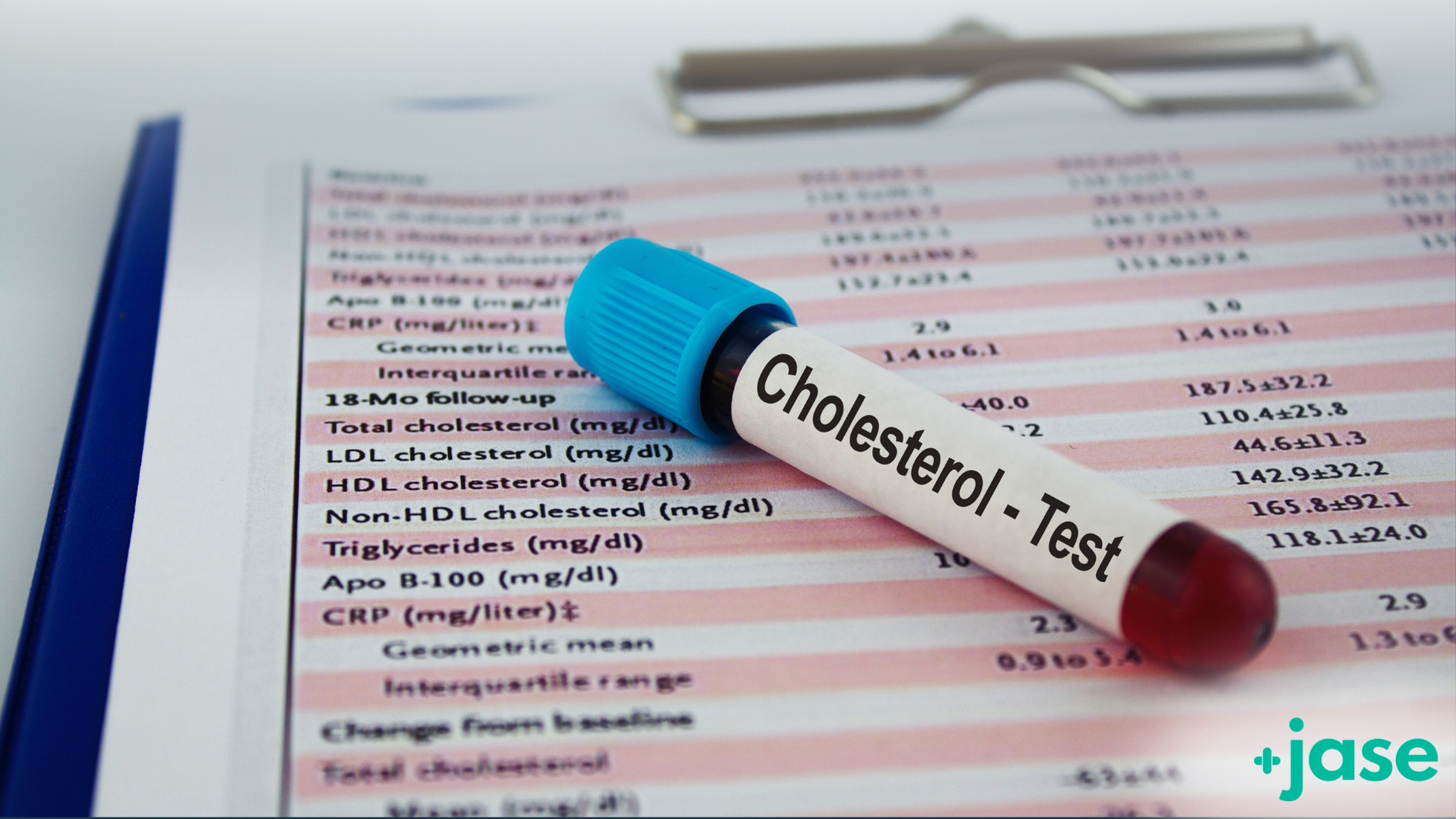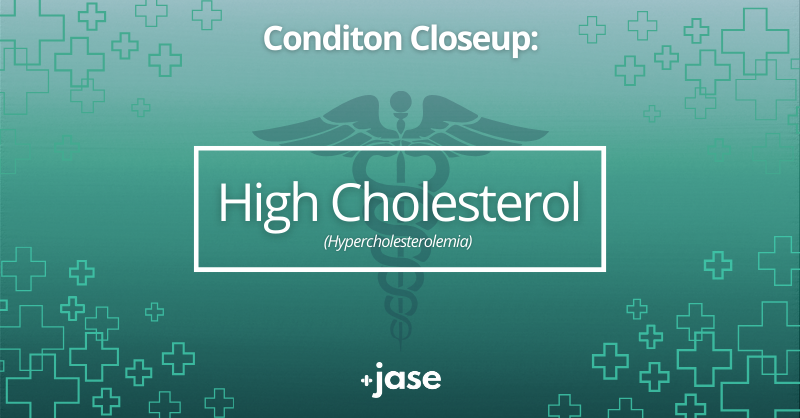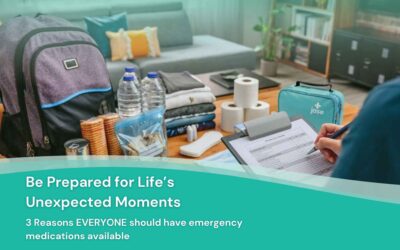High cholesterol is an issue for many… But nearly half of sufferers aren’t aware, or treating their condition.

Cholesterol: necessary in the right amounts, dangerous in high levels.
High cholesterol is a prevalent health issue in the United States, affecting millions of adults and posing a significant hazard to overall heart health. Cholesterol levels also increase your risk for heart disease – the leading cause of death in the United States.
Through a combination of dietary and lifestyle choices – and when necessary, medication – cholesterol levels can be managed, and the health risks mitigated.
| About 86 million U.S. adults have borderline high cholesterol levels ( >200 mg/dL), and 25 million have high cholesterol ( >240 mg/dL) CDC |
Risk Factors and Lifestyle Choices:
While some risk factors like age and genetics are unchangeable, lifestyle significantly impacts cholesterol levels. Diet plays a crucial role, with high intake of saturated fats, trans fats, and refined carbohydrates contributing to elevated cholesterol. Physical inactivity, obesity, smoking, and excessive alcohol consumption also negatively affect cholesterol profiles.
Often overlooked factors include chronic stress, poor sleep habits, and high sugar intake, all of which can disrupt cholesterol metabolism.
| Nearly half of those with high cholesterol are unaware of their condition, and thus not treating it. |
Managing High Cholesterol:
Fortunately for some, cholesterol can be managed effectively with the right lifestyle choices being made, while others may additionally require medication. Either group that you fall into, know that high cholesterol’s health risks don’t have to be severe if you are diligent about prioritizing heart health.
Lifestyle Changes:
- Adopt a heart-healthy diet rich in fruits, vegetables, whole grains, and lean proteins.
- Increase physical activity: Aim for at least 150 minutes of moderate-intensity exercise per week.
- Maintain a healthy weight through a balanced diet and regular exercise.
- Quit smoking and limit alcohol consumption.
- Manage stress through relaxation techniques, meditation, or yoga.
- Ensure adequate sleep: Aim for 7-9 hours per night.
- Stay hydrated and limit caffeine intake.
Medications:
- Statins: These drugs, including atorvastatin (Lipitor™), and rosuvastatin (Crestor™) are the most commonly prescribed.
- Cholesterol absorption inhibitors: Medications like ezetimibe reduce cholesterol absorption in the intestine.
- Fibrates: Drugs such as fenofibrate and gemfibrozil primarily lower triglycerides.
Note: all of the medications listed above (and more) are available to receive a 12-month backup supply with our Jase Daily service.
The Importance of Medication Adherence
For those prescribed cholesterol-lowering medications, consistent adherence is crucial. Suddenly stopping these medications, especially statins, can have serious consequences. A rapid increase in cholesterol levels can occur, heightening the risk of cardiovascular events.
Statins help stabilize arterial plaques, and discontinuing them can increase the risk of plaque rupture. Many cholesterol medications also have anti-inflammatory properties crucial for heart health, and stopping them abruptly can negate these benefits. Additionally, cessation can lead to deterioration of blood vessel lining function, known as endothelial dysfunction.
Even a short interruption in medication can be risky, especially for individuals with existing heart disease or multiple cardiovascular risk factors. The effects of stopping medication aren’t always immediate but can accumulate over time, potentially leading to serious cardiovascular events. It’s vital to maintain open communication with healthcare providers and never make changes to medication regimens without professional guidance.
In Summary:
Managing high cholesterol is a lifelong commitment that involves a combination of healthy lifestyle choices and, for some, medication. Regular check-ups and open communication with your doctor are essential for developing and maintaining an effective cholesterol management plan.
By taking proactive steps, individuals can significantly reduce their risk of heart disease and stroke, paving the way for better cardiovascular health.
You should never have to worry about running out of, or not having access to the medications you rely on daily. With Jase Daily, we offer a 12-month backup supply of many different cholesterol medications from each class of cholesterol drug: cholesterol absorption inhibitor, fibrate class lipid-lowering agent, and of course statins (HMG-CoA reductase inhibitors).
Check to see if we offer your specific cholesterol medication, or any of your other medications for chronic conditions today!
Lifesaving Medications
Recent Posts
Keeping you informed and safe.
Medical Readiness: What Really Kills First
When Disaster Strikes, It’s Not Hunger or Thirst That Takes the First Lives In every disaster zone, from hurricanes in the Caribbean to war zones in Ukraine, the pattern is the same. People worry about food and water, but it’s infection that kills first. A small wound...
Exploring Dr. William Makis’ Hybrid Orthomolecular Cancer Protocol: Focus on Ivermectin and Mebendazole/Fenbendazole
Exploring Dr. William Makis’ Hybrid Orthomolecular Cancer Protocol: Focus on Ivermectin and Mebendazole/Fenbendazole *Disclaimer: This article is for educational purposes and does not constitute medical advice. Always seek professional guidance.* In the evolving...
Be Prepared for Life’s Unexpected Moments
3 Reasons EVERYONE should have emergency medications avaiable. It's all about access—access to medications and care when you need it most. And when things happen outside of your control that access can disappear.Below are 3 examples of how easily this access can be...
Youth Preparedness: Teaching, Building, and Coping with Disasters
Educating and preparing your children ahead of time means fewer surprises in the event of an emergency.Growing Up Prepared: Empowering Youth in Disaster Preparedness As we observe National Preparedness Month, it's crucial to remember that disasters can strike at any...







